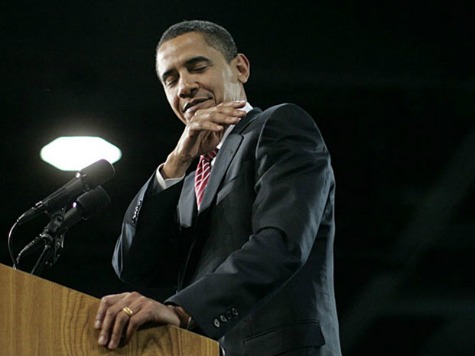
On Thursday afternoon President Barack Obama spoke to tech startup entrepreneurs and answered their questions at Los Angeles’ co-working space Cross Campus. Amidst touting his various self-proclaimed achievements and blaming Congress for Washington’s problems, the president referred to himself as “chronically optimistic” in the presence of the young crowd.
He promoted statistics on new jobs and unemployment numbers, according to the White House dictation of Obama’s speech. Comparing America’s numbers to those abroad, he painted a positive picture of the future for the young entrepreneurs.
While energy production and efficiency were said to be the best ever, Obama emphasized, “We’re doubling fuel efficiency standards on cars, and in fact, car fuel efficiency is the highest it’s every been on record.”
Emphasis was put on high college attendance, a lower gender pay gap, and the diversity of the upcoming generation “coming out of this recession.”
President Obama then transitioned from promoting a positive view of his legacy to his next vision for change that includes raising the minimum wage and investing in infrastructure.
Specifically, a focus for infrastructure is being put on “a smart grid,” promoted as an effort to increase energy efficiency.
Congress was blamed for gridlock in Washington and failure to institute the president’s policies, with Obama claiming it has led to the suppression of economic growth. He said the only reason the U.S. economy isn’t growing faster is “we’ve got a Congress that has been spending a little bit too much time worrying about the next election and not enough time worrying about the next generation.”
Obama, however, claims that there is good news and that he is seeing progress. He told the young crowd that being among them makes him “chronically optimistic about the future of America.”
The next segment of the session was Q&A with the audience.
The first question came from Ramin Bastani, owner of Healthvana. Bastani lauded Obama’s health care reform, crediting it with spurring innovation in companies such as his. He pointed to a move to get patients monitoring their own healthcare.
Obama responded with, “This is an area where there is going to be a revolution.” He pushed the idea that health care reform had slowed cost inflation to prevent additional premium increases of $1,600 per family. The president sold this as basically a “$1,600 tax cut.” “Nobody notices it, but that’s what’s happened,” he said.
Solutions for the “huge amounts of waste” in what Obama calls a “sick-care system” requires, “incentivizing people to stay healthy in the first place.” He promoted efforts to get Americans to keep track of their own health with what he referred to as “precision” or “personalized medicine.”
The case was made for Americans self-diagnosing: “if you think about the power of the web, then giving you that information and then saying, here’s what we know about this particular disease and how you can reduce your risks.” Obama followed up with, “Now, we’re going to have to change how we regulate some of this stuff.”
He promoted changing how people think about their health care and a working group he has been putting together on that idea: “We’re giving entrepreneurs the ability, if we build an effective platform, to essentially develop apps that work off this new information.”
In returning to the idea of energy efficiency, Obama told the audience that the “car nation” of America was “not going to change overnight” as he promoted government investment in mass transit.
The smart grid came up again when the president promoted its reduction of energy “leakage,” carbon emissions, pollution, and power consumption. All this could be accomplished, he said optimistically, “without changing our lifestyles, just with a better, more resilient power grid.”
Obama responded to another millennial techie in the audience, which Breitbart’s Tony Lee covered. In his comments, he suggested taking executive action to give guest worker visas for high tech companies.
The final question the President took was from Ariel Jalali, founder of Sensay at Cross Campus. Jalali took the opportunity to offer Obama a job after he leaves the White House, saying, “I wanted to get a jump on the competition and offer you your next gig.” Obama joked in response that he liked the company’s idea of being able to “dabble a little bit in the issues of the day” while in “sweat pants and a baseball cap,” but “I think I’d have to check out your perks,” he said.
He transitioned to say that the young entrepreneurs “have the opportunity in ways that previous generations did not have to create something yourself,” but continued, “the challenge is that you have less of a safety net.”
He cited the Affordable Care Act as an example of building portability and flexibility into the system to provide the “baseline security that you had in previous generations.”
Obama closed with, “As clunky and as frustrating as government and politics can sometimes be, the fact of the matter is, is that it is still vital. It still makes a huge difference. It is going to help determine whether or not you’ve got the platform to succeed.”
Later the same day Obama attended a fundraiser in the backyard of Gwyneth Paltrow’s Brentwood home. The event was reportedly stocked with celebrity supporters of the president and a minimum ticket price of $1,000 for a 200-person reception and $15,000 for a 50-person dinner, Breitbart News reported.
Follow Michelle Moons on Twitter @MichelleDiana.

COMMENTS
Please let us know if you're having issues with commenting.